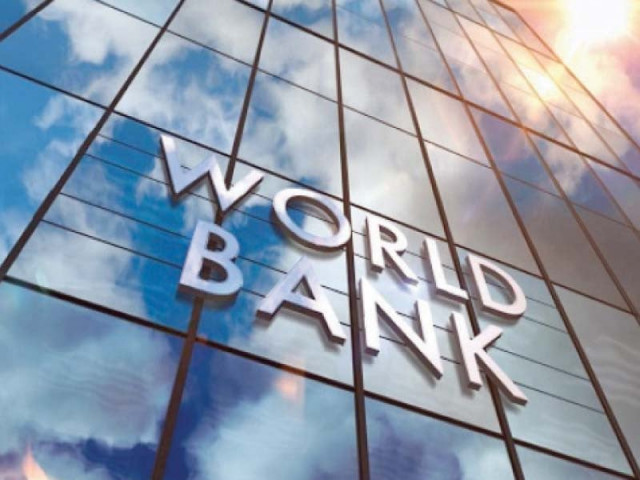$149.7m WB loan for flood protection, digitisation
WB blames power, gas tariffs for high inflation

The Board of Executive Directors of the World Bank has approved financing of $149.7 million for the 'Digital Economy' and 'Flood Prevention' projects of Pakistan, aimed at improving economic efficiency, coordination and transparency and prevention of floods in the future.
According to the World Bank, $78 million had been allocated for the ‘Digital Economy Enhancement Project’, which will improve financial system through technology and data-based decision making, as supporting a growing digital economy in Pakistan is the key to economic and social development.
Separately, $71.7 million has been allocated for the improvement project of Sindh barrages to ensure flood protection. The project will increase the resilience of the canal system and reduce the adverse effects of extreme flood and drought events.
The Special Investment Facilitation Council (SIFC) is committed to finding technology-based financial solutions to attract foreign investment in the country and to strengthen itself against the calamities of environmental pollution, said a press release.
Meanwhile, the World Bank has attributed the historic rise in inflation to the surge in electricity and gas prices. With the increase in electricity and gas rates in the country, the inflation rate has soared to its highest level in 50 years.
The World Bank forecasts that the inflation rate will remain at 26% in the current fiscal year 2023-24, but anticipates a decrease to 15% in the subsequent fiscal year 2024-25, further dropping to 11.5% in 2025-26.
According to documents, the World Bank notes that inflation in Pakistan during the first six months of the current fiscal year has hit its highest since 1974, attributing the significant increase in production costs to the surge in electricity and gas prices.
The World Bank underscores that the primary cause of the inflation hike in Pakistan is the escalation in electricity and gas prices.
In urban areas, the cost of energy has risen by 50% in the first six months of the current fiscal year, with energy inflation standing at 50.6%, compared to 40.6% in the same period last year.
Energy inflation refers to the rate at which prices for energy-related goods and services are increasing over a specific period.
It measures the percentage change in the cost of energy, including electricity, gas, fuel, and other energy sources, compared to a previous period. In the context of the news report, "energy inflation" specifically refers to the increase in prices related to electricity and gas.
The average inflation rate for the first six months of the current fiscal year was 28.8%, up from 25% in the corresponding period last year. Despite the stability of the rupee, increased local crop production, and decreased price pressure in the global market, inflation in Pakistan has surged.
The World Bank projects that the average inflation rate in Pakistan for the current fiscal year 2023-24 is expected to be 26%, compared to 29.2% in the previous fiscal year. However, it anticipates a decline to 15% in the next fiscal year 2024-25, further dropping to 11.5% in the fiscal year 2025-26.



















COMMENTS
Comments are moderated and generally will be posted if they are on-topic and not abusive.
For more information, please see our Comments FAQ